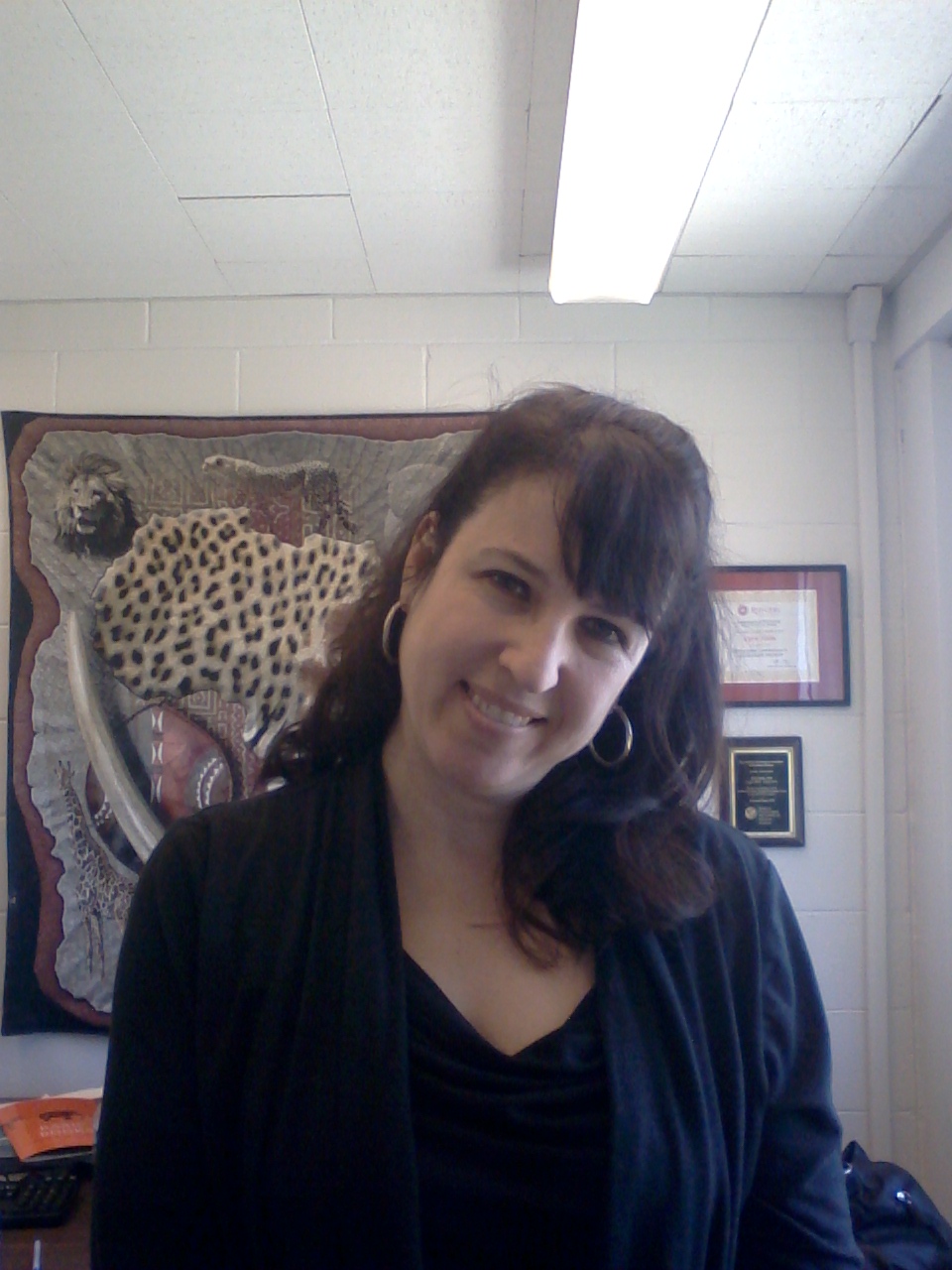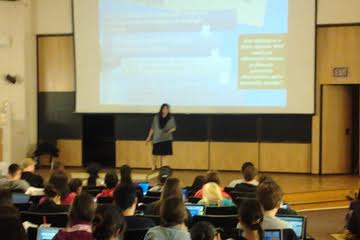School name:  Rutgers University
Rutgers University
Type of college/university: large research university
School locale: city
Classes I teach:
General Psychology, Social Psychology, Abnormal Psychology, Personality Psychology, Advanced Topics in Social Psychology, Research Methods in Psychology, Soul Beliefs
What’s the best advice about teaching you’ve ever received?
The best advice I have received is not to talk at the students, but to is in the discussion. I do not “lecture” at them but include them in the process of learning.
Tell us about your favorite lecture topic or course to teach.
I love teaching social psychology because the students are amazed at their biases and the manner in which they think. I usually ask students questions relating to thoughts about the self and attribution of others and the reality is never what they think. We tend to believe we are better than we really are, that we make logical decisions, and that we know ourselves. In class we challenge these “common sense” intuitions and realize that we don’t really know ourselves and there is really no reason to try to uncover our self-serving biases.
Describe a favorite in-class activity or assignment.
One of my favorites addresses the debate of similarity and complementarity. I have students get together with a partner with whom they are not familiar (one is a confederate). I tell one person either to always agree with their partner or always disagree (depending on the dyad). Before the exercise, many indicate that opposites attract, but after the exercise the individuals who had someone agree with them enjoyed the conversation much more than those who had someone disagree with them.
When we talk about the bystander effect, I have a student lay on the floor at the beginning of class to determine if anyone would help the student. Almost no one stops and we talk about why they did not try to help the student.
I am able to recreate the Asch study by having confederates give the wrong answer on the line matching task. Inevitably, almost everyone agrees with the incorrect answer and we discuss conformity.
 What teaching and learning techniques work best for you?
What teaching and learning techniques work best for you?
I usually give online quizzes every two weeks, 3 midterm exams, an application writing assignment, and clicker questions (participation points). Given that my class usually consists of 400 students, I am limited on essay exams. Some students do not like having to attend class, but I tell them it is not the grade, but the experience. I try not to lecture, but have a conversation with the students. Even in a class with hundreds of students, I will ask for input and discussion. Just the other day I had students come up to debate whether personality can be defined by traits or situations and then the class voted on the team that gave the best arguments. I usually have demonstrations and students come up on stage to break up the class. I also tend to ask controversial questions to get students thinking about issues and themselves.
I recently started teaching an online class called Soul Beliefs, which was created by Dan Ogilvie and Len Hamilton. Students discuss the soul in relation to psychology, philosophy, neuroscience, and religion. The course consists of weekly in depth discussion, weekly assignments, and take home essays.
In my abnormal psychology class, students can perform an abnormal behavior and record the reactions of individuals around them for extra credit. These videos have become very elaborate with music and interviews with people who observed the behavior.
What’s your workspace like?
My workspace is organized chaos. It may appear disorganized, but I know where everything is located. I have many books and many piles of paper and everything is where it should be.

Three words that best describe your teaching style.
Passionate, engaging, though-provoking
What is your teaching philosophy in 8 words or fewer?
Involve the students in the experience!
Tell us about a teaching disaster (or embarrassment) you’ve had.
We were talking about bullying and a student with awkward social skills kept waving his hand back and forth. A student behind the awkward student was making fun of him and, in a sense, bullying the student. I asked him if we realized the irony of the situation since we were discussing the topic of bullying and he stopped right away. I felt bad for putting him on the spot in front of other students.
What is something your students would be surprised to learn about you?
They would be surprised to know that I am actually a person. In my class, when I talk about the series “Breaking Bad,” or any pop culture reference, they start laughing because they can’t believe that I may have the same tastes that they do. They would also be surprised to learn that I am a procrastinator just like they are.
When I talk about my previous careers, I always get laughs and chatter. For example, I used to work as a private investigator and they cannot reconcile that occupation with the professor who is teaching their class.
What are you currently reading for pleasure?
I am currently reading Quiet: The Power of Introverts, by Susan Cain. My students would probably be surprised to learn that I am actually an introvert.
What tech tool could you not live without?
My laser pointer.
